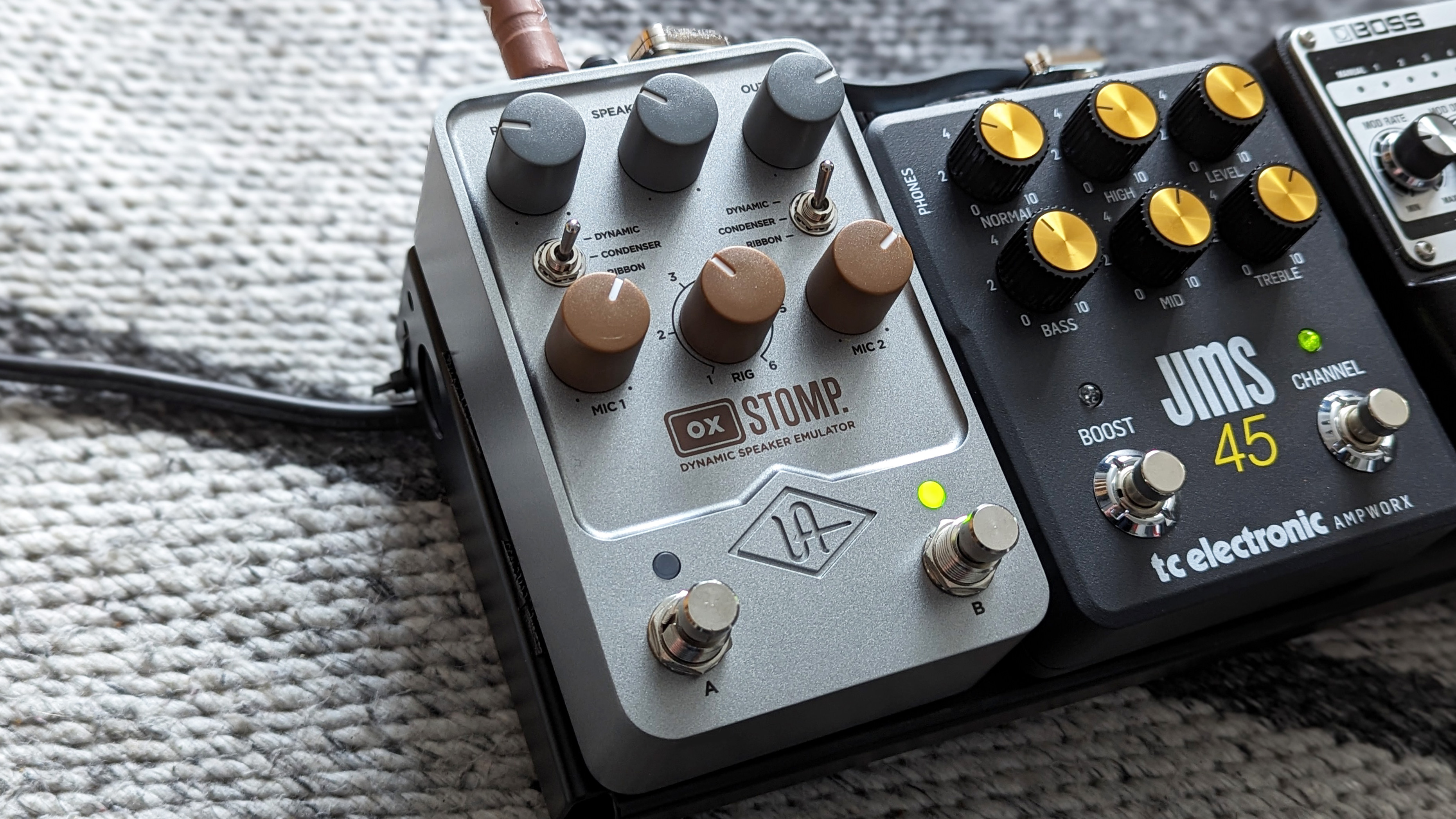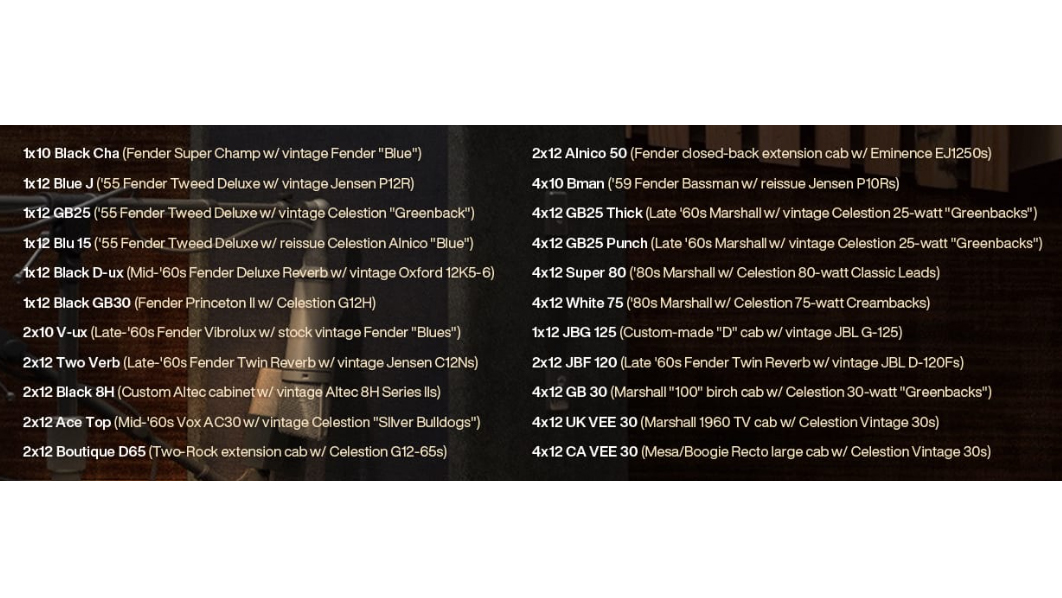MusicRadar Verdict
In addition to UA's established benchmark speaker and mic emulations and control over them, the included premium EQ, compression, delay and reverb features make this an even more powerful pedalboard rig addition. But the ommissions and app issues do undermine that somewhat.
Pros
- +
Excellent array of curated speaker models and mics.
- +
A great potential pairing with your preamp pedal.
- +
The plate reverb, 1176 compression and delay are a huge plus.
Cons
- -
No headphone out.
- -
No XLR out for live options.
- -
Many core features only editable via a Bluetooth app.
MusicRadar's got your back
- Universal Audio UAFX Ox Stomp Dynamic Speaker Emulator pedal: What is it?
- Universal Audio UAFX Ox Stomp Dynamic Speaker Emulator: Performance and verdict
- Universal Audio UAFX Ox Stomp Dynamic Speaker Emulator pedal: Hands-on demos
- Universal Audio UAFX Ox Stomp Dynamic Speaker Emulator pedal: Specifications
Universal Audio UAFX Ox Stomp Dynamic Speaker Emulator pedal: What is it?
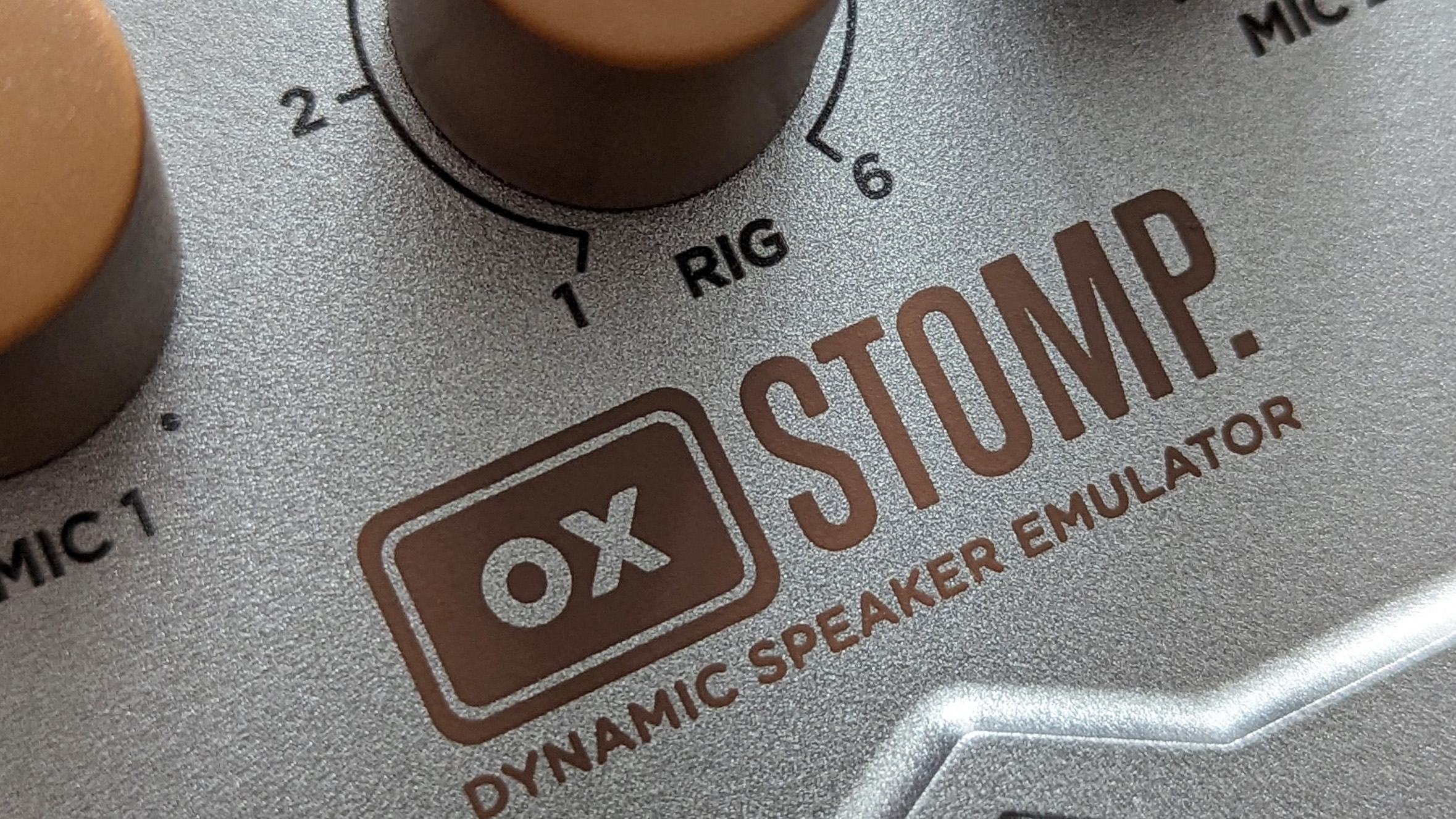
We're back to where Universal's guitar hardware story began here: the Ox Amp Top Box. Announced back in 2017, the speaker, mic and room modeller, load box, DI, attenuator and recording interface was designed to make your tube amp more flexible to use in a recording environment and at lower volumes. Now the UAFX line has taken the modelling side of that and packaged it in pedal form.
The Ox Stomp is designed for a pedalboard rig to work alongside an amp preamp pedal and not an amp. UA's detailed curated speaker and mic models are paired with its 1176 compressor emulation, alongside stereo digital delay and plate reverb. So while you can't upload third-party IRS to the Ox Stomp, you're getting UA's top notch effects as part of the deal.
Players can adjust the level of two mic models on the fly with the pedal, choosing between three types that are uploaded to it via the UAFX Control app. Along with the full array of speakers and mic IRs, this Bluetooth mobile app gives you access to deeper editing and effects, along with a number of presets – some based on famous artist sounds. You can also set up six preset 'Rigs' on the app to switch between on the physical pedal. Room level and Speaker Drive are also controllable on the pedal itself.
I'm going to start this review on a slightly negative step, but trust me – things improve. Full disclosure: my review of the Ox Stomp was delayed as a result of issues connecting to the UAFX Control app with my Android phone. After initially connecting (albeit inconsistently) to the Ox Stomp, the update to Android 14 abruptly ended relations. Clearly, I was not alone as Universal Audio pushed out a new firmware (1.1.7) to all its Bluetooth-enabled UAFX pedals on 21 November to address this. And for the reasons I just mentioned, the app is a very important part of making the most of this pedal. More so than any other UAFX release to date.
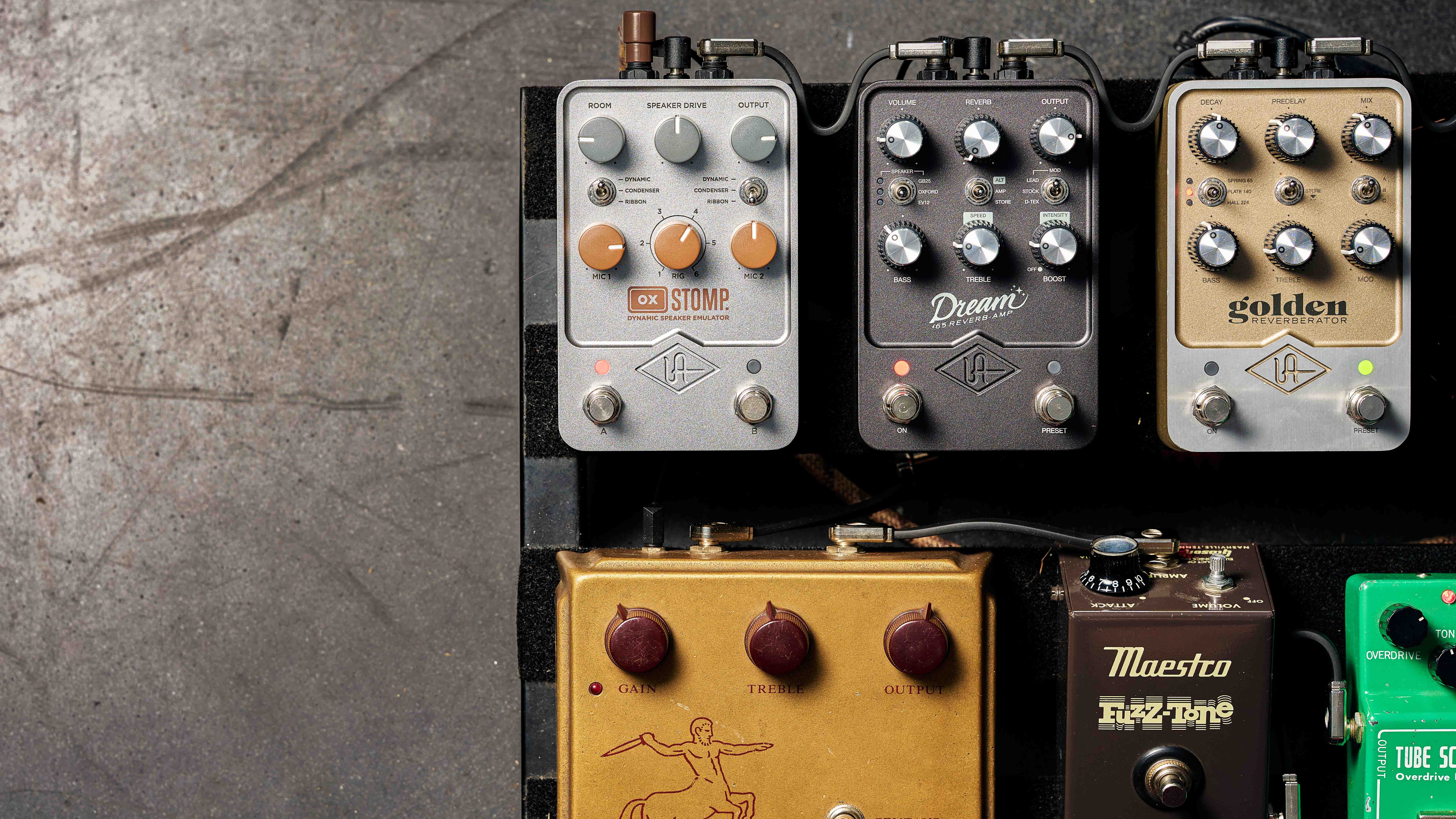
Universal Audio UAFX Ox Stomp Dynamic Speaker Emulator: Performance and verdict
The update improved things for me dramatically, but just like the original Ox, the reliance on a mobile app highlights a potential pitfall. It opens this pedal up to issues that can have nothing to do with the manufacturer. UA can't just design it with iOS in mind – and Android phone models are myriad in number. There are a lot of moving targets here. While I understand a compact modelling pedal needs a way around the lack of onboard menu screen for deeper features, I also wonder about a mobile phone and tablet app with a Bluetooth connection as the best and only solution.
I would really like to see UA offer the ability to connect to its pedal's settings via a desktop app and its USB-C port so there's at least an alternative means of connecting for owners. As it stands, I'd advise anyone using this pedal for live situations to set it before you're at the venue to ensure it isn't affected by any connectivity issues that you can't overcome before your set.
However, with at least a few of the of the app-based parameters like compression, master EQ, mic type, delay and reverb levels – you might want to tune them to the room you're playing in and really hone in on your sound. Relying on a phone and a Bluetooth connection seems oddly regressive Vs analogue pedals that have relatively timeless usability. This is not a set-and-forget pedal because a l lot of crucial features of the Ox Stomp can only be activated and changed via the app.
Want all the hottest music and gear news, reviews, deals, features and more, direct to your inbox? Sign up here.
With all that said, when it does all come together, this really is a wonderful piece of equipment – albeit with some annoying omissions.
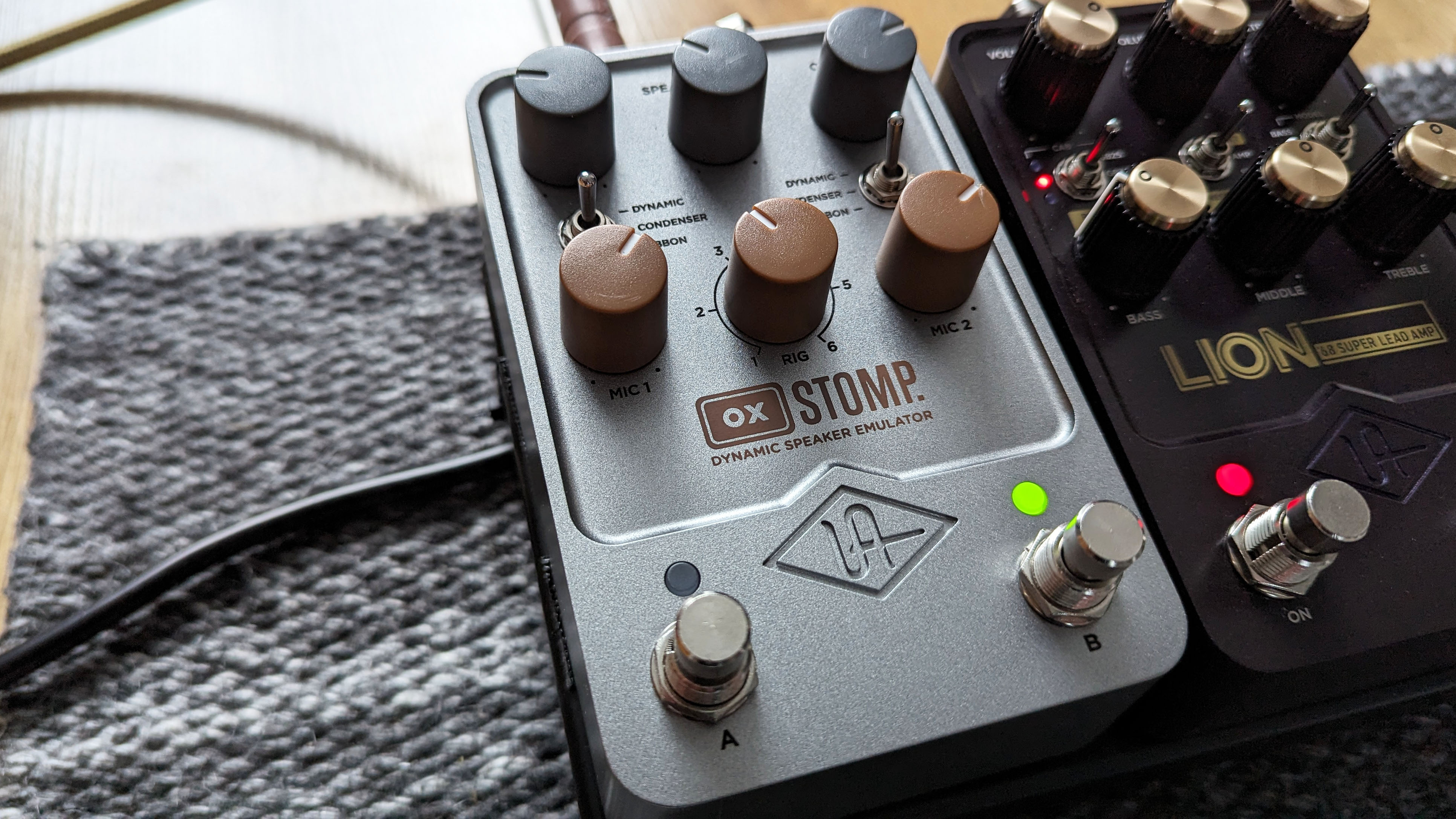
Exploring the speaker and mic side of the Ox Stomp illustrates just what a crucial element of your sound speaker choice is
There is something to be said for expert curation over wading through hundreds of IRs online. The level of control offered here with Speaker Drive and Mic choice goes beyond the typical impulse response. The company knows that it's doing with a team of passionate amp lovers behind the speaker choices – as it proves with its Lion '68 Marshall Plexi experience. The selection here showcases it with 1x12, 2x 12 and 4x12 cabs, taking in classics including AC30, Twin, Plexi and Bassman examples. I auditioned some suitable candidates with the first wave of TC Electronic Ampworx pedals (that have one onboard IR each) and it takes them to a new level.
Exploring the speaker and mic side of the Ox Stomp illustrates just what a crucial element of your sound speaker choice is. Finding the pairing of amp and speaker that inspires you is as important as any other gear decision you'll make. This is where the digital realm is such a great development for giving players access to experiment. The added control of Speaker Drive also adds even further to the amp-feel here; as it's increased there's a springier feel to the response as it breaks up easier.
The UAFX Dream '65 has six excellent speaker emulations onboard but I even became taken with the full-bodied pairing of the Ox's Twin speaker emulation and that pedal's Fender Deluxe Reverb emulation. Again, it's almost scary how much it feels like an instant hybrid and highlights the kind of options modelling offers that are much more difficult to create in the analogue world. But the speaker models and mic options are only part of the package here. The rest of the deal is what makes it unique in the pedal market right now. It goes surprisingly deep.
Having an 1176 compressor tucked away to add to your signal chain as an always-on option is a huge plus – it might even free up a pedal on the board, or save you buying one I rated very highly. All the controls for it are found on the app and mirror the core parameters found on that recent standalone 1176 pedal.
There's five modes of stereo digital delay that are a stereo delight (Dual, Crossover, Ping Pong, Chorus and Flanger). Alongside Feedback, Modulation Depth, Rate and LFO Shape, you can set the time for each individual delay channel – no wonder the Edge is a UAFX fan. There are even High and Low Cut controls, and there's nothing to stop you dialling the already short delay times for the Flanger and Chorus down to give yourself a bonus footswitchable modulation effect.
These effects add up to a lot, and go well beyond what some may presume is initially 'just' a $399 IR pedal
The Plate reverb is equally editable; Pre Delay, Decay, Balance, Mix, Treble, Bass and a Low Cut allow you to create that perfect always-on setting. Again, if that's your reverb need it's more space on the pedalboard saved – as well as money. As we've already noted in our Del-Verb, Golden Reverberator and Heavenly Plate pedal reviews, UA's emulations are top-notch.
These effects add up to a lot, and go well beyond what some may presume is initially 'just' a $399 IR pedal. Especially as the app allows your to assign Delay and Reverb to footswitches too. You can also choose to have another footswitch to cycle through two of your Rig presets, or four if you assign both switches to that function.
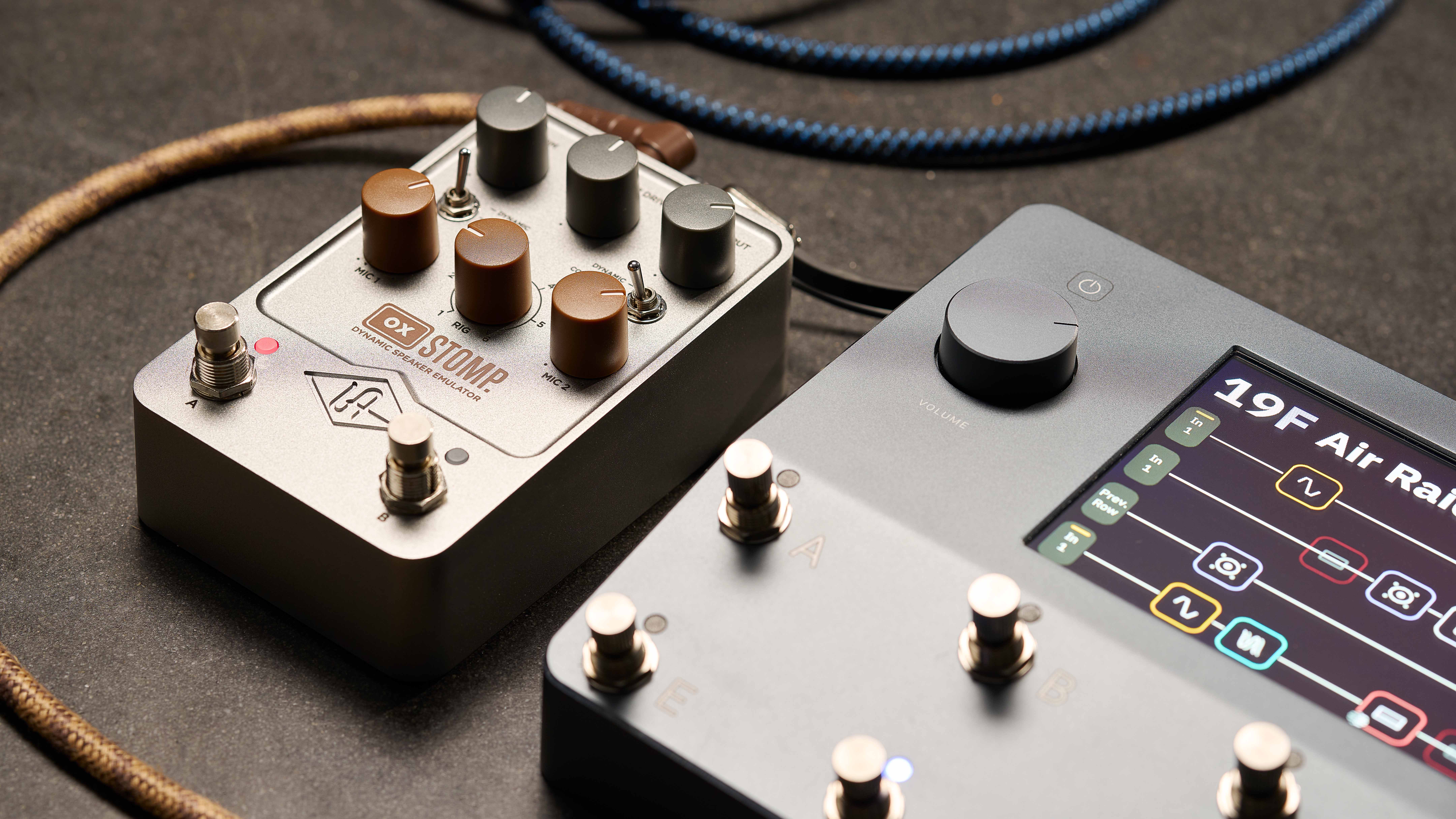
I think the ideal user case would be someone who is fully invested in pedal amps and wants more scope for home, live and recording scenarios
Treated as the last station on your pedalboard rig signal chain, the Ox Stomp is a powerhouse of potential with those added effects. It starts to justify the price for the right use case. I think the ideal user case would be someone who is fully invested in pedal amps and wants more scope for home, live and recording scenarios. But for all three of those uses there are some absences on the feature front that hold the Ox Stomp back for me.
The lack of headphone out was disappointing on the UAFX amp pedals, here it's frustrating. The Ox Box has it, and It just seems like such an obvious feature for an enhanced IR pedal that helps to enhance your pedalboard so much as a standalone rig. You'll need scratch silent practice from that scope. I ended up plugging in a little Spark Go (set to flat response with no models activated) but it felt like another piece of gear I feel I shouldn't have to reach for.
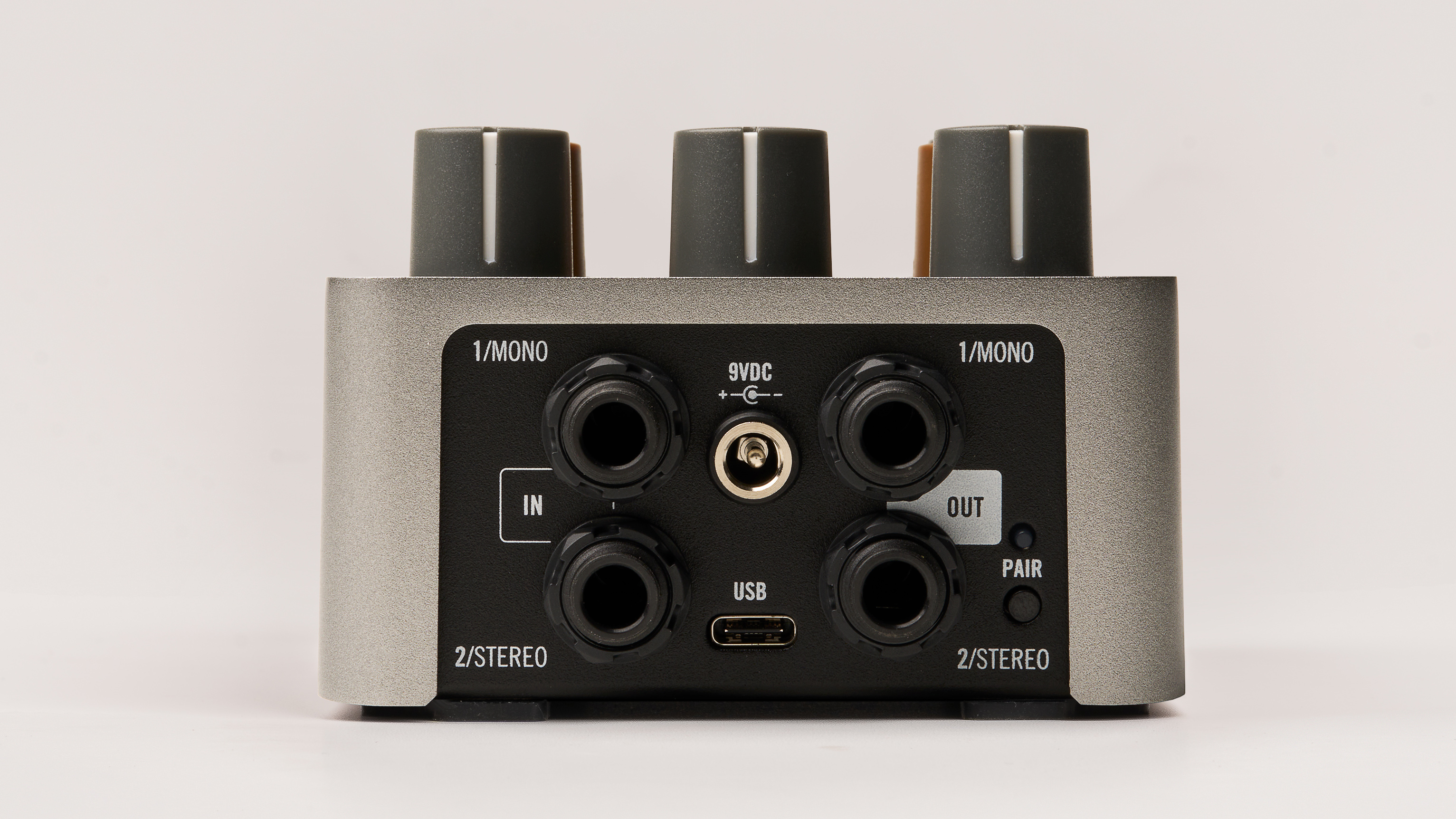
The lack of XLR output also means you'll need to invest in something like the Walrus Audio Canvas if you need to go straight to the desk as well as your FRFR cab onstage. Again, it requires more gear to be added (and expense) to the equation when it could have been streamlined.
In addition to the mixed experiences with the app connectivity, I feel these two omissions hold the Ox Stomp back from all it could have realistically been. But in terms of sounds, it's got all the goods to elevate your amp pedal to a new level.
MusicRadar verdict: In addition to UA's established benchmark speaker and mic emulations and control over them, the included premium EQ, compression, delay and reverb features make this an even more powerful pedalboard rig addition. But the ommissions and app issues do undermine that somewhat.
Universal Audio UAFX Ox Stomp Dynamic Speaker Emulator pedal: Hands-on demos
Corey Congilio
Mark Johnston

Kris Barocsi
Universal Audio UAFX Ox Stomp Dynamic Speaker Emulator pedal: Specifications
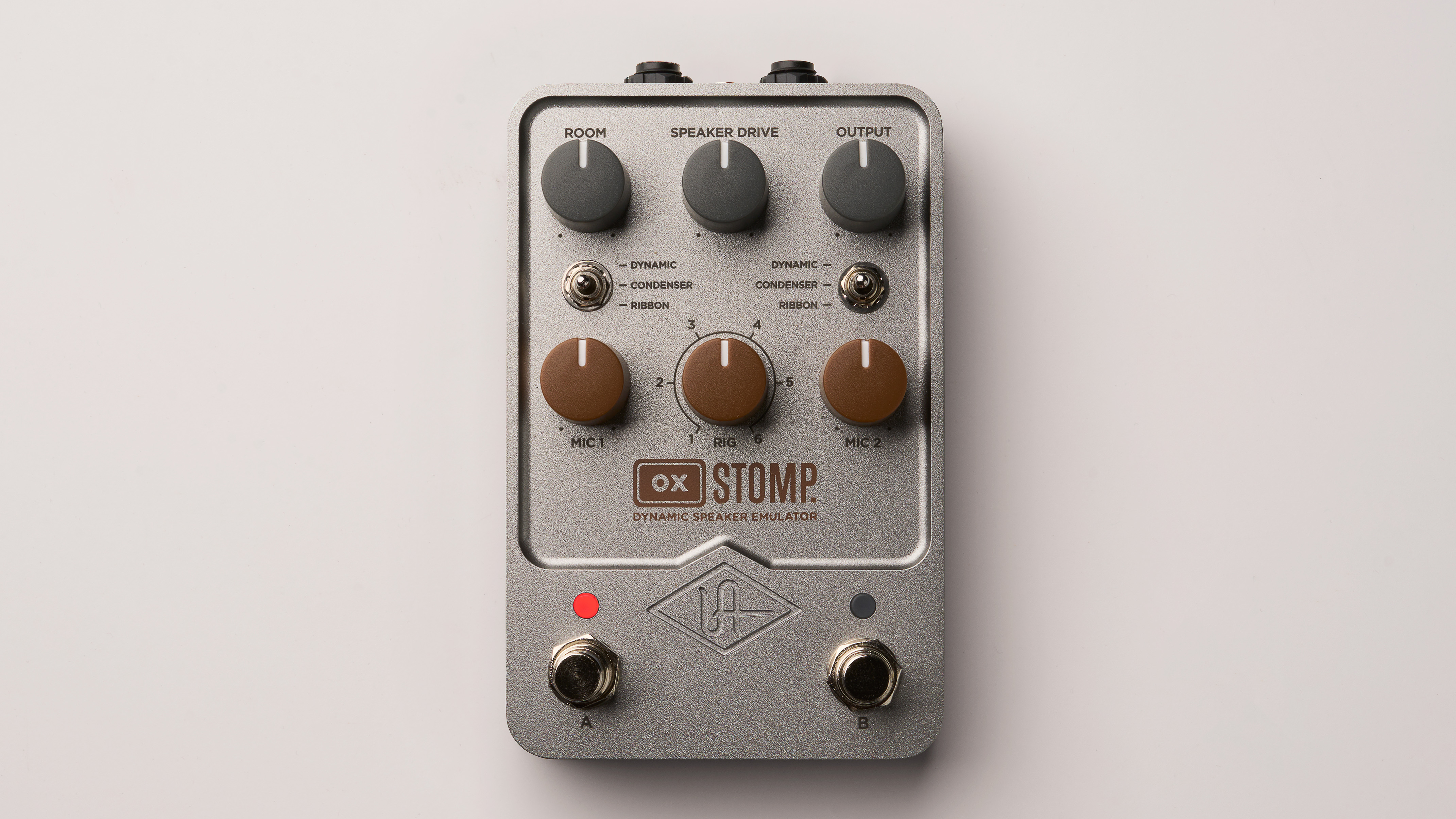
TYPE: Cab and mic emulation pedal with EQ, 1176 compressor, digital delay, room and plate reverb
CONTROLS: Room level, Speaker Drive, Output, Mic 1 mini toggle switch, Mic 2 mini toggle switch, Mic 1 level, Rig selector, Mic 2 level, two footswitches to select Rigs, reverb or delay
FEATURES: 1176 compression, plate reverb, EQ, stereo delay and modulation; dynamic, ribbon and condenser mic emulation, room emulation
POWER: 9V DC pedalboard isolated power supply (400mA power draw)
CONTACT: Universal Audio

Rob is the Reviews Editor for GuitarWorld.com and MusicRadar guitars, so spends most of his waking hours (and beyond) thinking about and trying the latest gear while making sure our reviews team is giving you thorough and honest tests of it. He's worked for guitar mags and sites as a writer and editor for nearly 20 years but still winces at the thought of restringing anything with a Floyd Rose.
